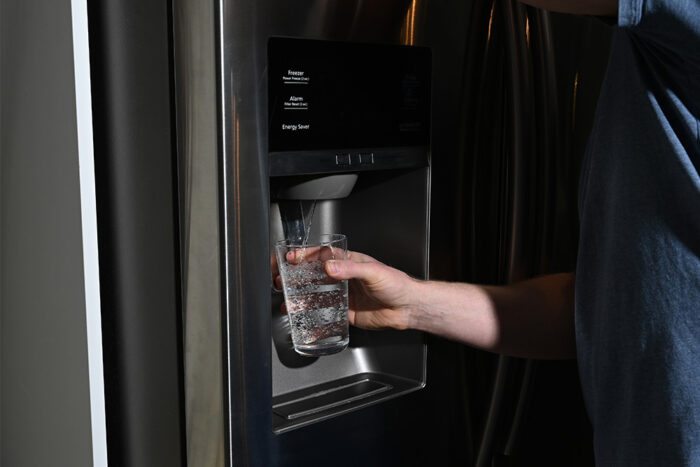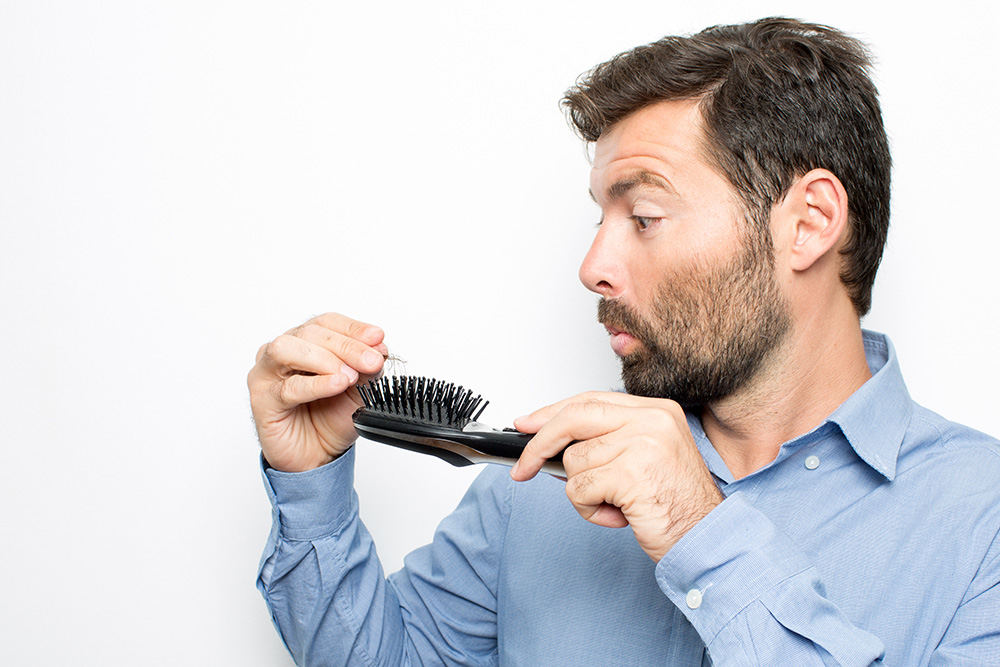Are you noticing large amounts of hair on the shower floor? Or is your hair notorious for coming off in the comb? If you’re sick of losing your locks, identifying the causes of hair loss can be tricky. You can’t do much about genetics, but there are several contributing factors that you can do something about. From in-home remedies to expensive salon treatments, there are ways to help your hair growth, but you may be fighting an uphill battle if your water is part of the problem.
If you’re showering in hard water, all of your efforts to strengthen your hair may be going down the drain – literally. Can hard water cause hair loss? In short, not directly, but hard water can negatively affect your hair, which can indirectly lead to hair loss or at least the appearance of it.
What is Hard Water & What Problems it Does Cause?
Hard water is water high in mineral content like calcium and magnesium. As many as 85 percent of homes in the United States have hard water, according to the U.S. Geological Survey, creating issues for everyone from rural well owners to urban municipal customers.
But what problems exactly? We’ve identified eight problems caused by hard water, including soap scum, skin irritation — and yes, hair damage.
3 Signs of Hard Water on Hair
-
Shampoo doesn’t form a lather
– this is because the minerals in hard water negatively interact with the fatty acids in soaps. The calcium clings to the cleaning agents making a sticky solid that is very difficult to rinse away. This might sound familiar because that is what causes soap scum build-up on your shower walls. If there is soap scum there, you can bet that it is everywhere, including your hair.
-
Hair is dry and frizzy
– this is because hard water actually dries out your hair (and skin, which can lead to issues with dandruff, too) by not allowing moisture into the hair strands. Having dry hair not only makes it more prone to tangles and frizz, but it will make it thinner over time as well.
-
Hairs break off at the base
– this is due to calcium deposit build-up on the scalp and is what many may mistake for hair loss. The problem may not be with the hair root, but in the brittleness of the hair shaft. Hard water will make your hair weak, no matter how healthy your follicles are functioning.
Learn more about the negative effects of hard water on your hair.
More importantly, what can you do about it? We’ll now turn to the solutions to hard water hair damage and the appearance of hard water hair loss.
4 Tips to Counteract Hard Water Hair Issues
You might think showering more often could help, but extra showers in hard water may actually prevent you from getting clean. Here are some things that can work:
1. Use an Apple Cider Vinegar Rinse
The acid in a vinegar rinse like apple cider vinegar can remove the layers of magnesium and calcium build-up from previous showers with hard water.
Mix 1 tablespoon of vinegar with 3 cups of water (or distilled white vinegar, lemon juice, or lime juice), then apply it as close to the scalp as you can after shampooing. Let it sit for a few minutes then rinse away. This homemade solution is best applied once a week to neutralize the hair damage from hard water, and it can even prevent hair color from fading.
2. Apply Aloe Vera to the Scalp
Aloe vera is typically thought of for skin care, but it can help protect your hair from hard water effects too. Aloe vera juice can be applied directly to the scalp, and if you leave it on for 2-3 hours and rinse away, you’ll strengthen your hair, while reducing scalp inflammation. Hard water can make hair brittle; aloe vera can restore it before you comb it out.
This process can be done a few times a week.
3. Rinse With Bottled Water After Every Shower
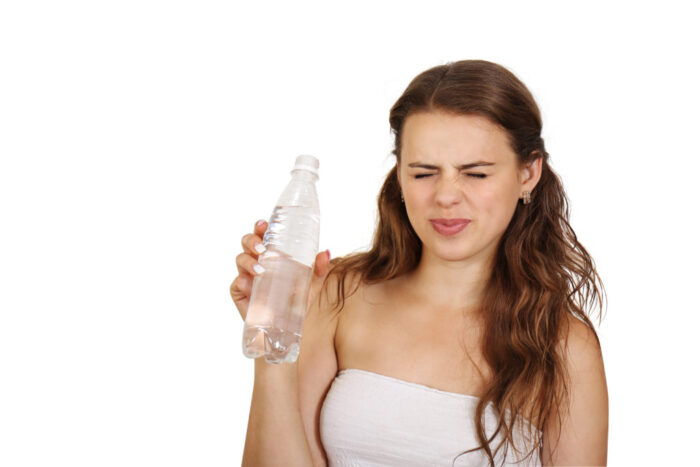
Softer, purified water applied throughout your scalp and hair as you’re wrapping up your shower can help prevent scaly build-up from the magnesium and calcium in hard water.
Of course, it’s an extra step that can get expensive quickly, and it’s ultimately ignoring a bigger problem since hard water is damaging your skin besides, as well as your shower head, pipes and maybe even laundry.
4. Install a Water Softener for a Permanent Hard Water Fix
Ultimately, there’s only one way to permanently fend off hard water at the source, before it impacts your plumbing, appliances, shower experience and hair: Make a smart upgrade to a home water softener.
A water softener is designed to be a continuous solution to all of your hard water issues by capturing the calcium and magnesium minerals as soon as your water enters your home, leaving only the softened water to travel up through your faucets and plumbing. Once the media inside a water softener is at the maximum amount it can hold, it will go through a “regeneration” process to use a salt water solution to flush the calcium minerals down the drain, leaving the water softener refreshed and ready to remove the hardness once again.
That means with very little effort, you can enjoy not only strong supple hair, but silkier skin, less soap scum, and appliances that stand the test of time without limescale build-up.
If you’re in the 85% of homes with hard water, get the problem out of your hair — literally — by reaching out to a local water expert who can evaluate the mineral content in your water and recommend an affordable, long-term solution specific to your needs.
Find the right contractor for you.
Recent Homeowner Resources
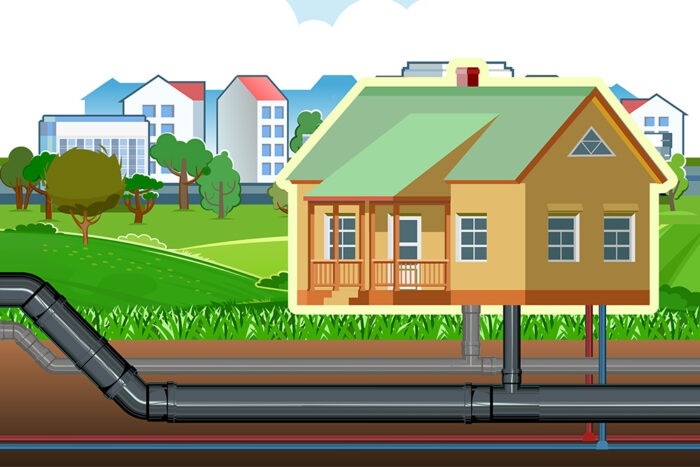
Are You Drinking Contaminated Water? New Rules Help Homeowners Identify Lead Risks
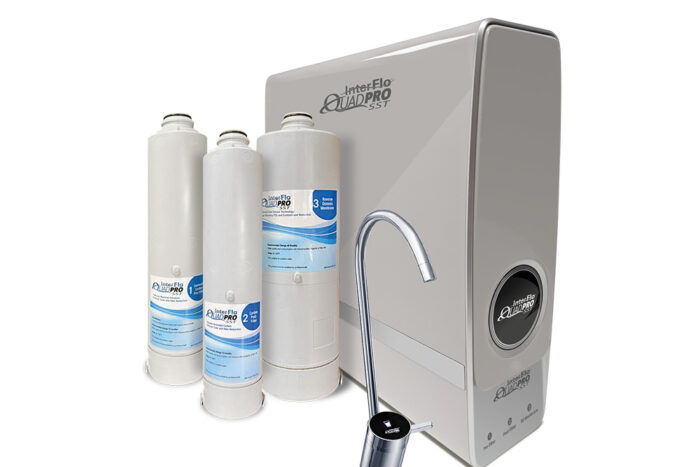
Introducing InterFlo® QuadPro SST!
